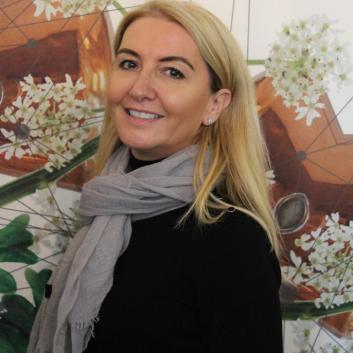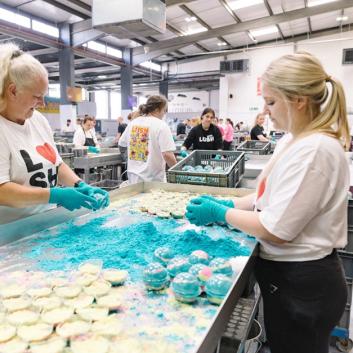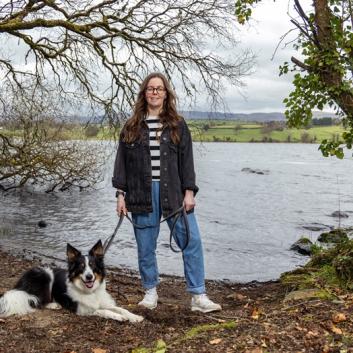Looking at business sustainability through the upskilling lens
Businesses are under increasing pressure from all stakeholders to improve the sustainability performance of their operations.
Companies must integrate sustainability principles to remain competitive, meet stakeholder demands, and stay ahead of looming regulatory requirements.
You will need the right skills and knowledge to do all this.
I worked in sustainability consulting for several years, helping organisations from all different sectors and sizes begin the first stages of their sustainability transformation.
I understood quite early on that the only way to ensure the integration of sustainable business practices into any organisation was through education and upskilling of individuals.

Furthermore, I believe every job is becoming a green job, and all employees need to understand how their role impacts an organisation’s sustainability goals.
External consultants, like I was, can only help to a certain extent. Internal teams must have the necessary skills to implement the critical steps to improve their business. I brought this expertise to the Institute of Sustainability Studies (ISS) to enable whole organisations to internalise sustainability through learning.
ISS is an ed-tech start-up that helps individuals and organisations on their sustainability journeys by developing and delivering practical, comprehensive, and action-oriented courses that can help them implement sustainability practices throughout their operations.
Removing jargon and making sustainability practical and accessible
Despite the growing interest from business leaders in this area, I have noticed that the jargon associated with sustainability often drowns the easy means of putting things into practice. In essence, they don’t know where to begin.
We have designed two learning opportunities at ISS - a Certificate and a Diploma in Business Sustainability - to remove the cloud that covers climate change, carbon management, circular economy and other topics in this field.
For instance, to tackle regulatory barriers, we provide detailed information in our Module on Sustainability Plan Implementation on key business-friendly regulations, including the EU Taxonomy, Sustainable Finance Disclosure Regulation, and the Corporate Sustainability Reporting Directive, all of which provide greater transparency concerning the analyses of sustainability risks inherent in business activities.
A dedicated module on Sustainable Finance helps businesses learn about financial assets and benefits that bring economic and environmental benefits while tackling the barrier of limited resources.
There is a lot of misinformation out there, especially when it comes to transitioning to a sustainable business.
One of the first assumptions we break in our courses is that being sustainable means shedding more money and taking a direct hit on profitability.
However, as most of our participants have found and experienced, many easy tools will help you become sustainable without compromising your profitability.
Breaking big ideas down into quick and actionable steps
Complex and complicated concepts, such as circular economy or decarbonisation, can be broken down and translated into quick and actionable steps.
That`s also the case with the circular economy, which could be a real win-win-win for businesses, society and the environment if adopted properly.
We have a dedicated module on circularity in business and sustainable products, focusing on optimising every aspect of a product’s lifespan.
In the end, they have the ability to explore advantages and analyse the risks and opportunities associated with a circular business model.
In addition, they can assess their current organisational value chain, figure out how they can design products that better suit the circular economic model, and understand the importance of communicating their company’s sustainability journey. Participants will also understand that they can begin with small steps.
Companies can do many things, from becoming more waste friendly to actively reducing waste from daily operations and across the supply chain. Building a circular business model that supports the company`s daily operations require a clear picture of where they are now and where they are headed. Therefore, a thorough analysis is where it all should start.
The next step is to implement the R-strategies - refuse, redesign, repair, recycle, and reduce and work out a feasible revenue model that can help achieve these goals.
Putting it all together
To be motivated to implement changes, you need to see the benefits of your investment and actions. It includes the essential step of considering customers’ needs, and creating a well-researched business plan that caters to these needs most effectively is vital.
It is important to note that any plan should always have room left to adapt and improvise as per client needs. Green marketing and communication are pivotal when it comes to building a sustainable business.
Unless you get the word out about your green credentials that you have worked hard on, the success of your business will be limited.
You should find a way to be transparent and authentic in your communication while avoiding the pitfalls of greenwashing and building an honest relationship with your customers and stakeholders.
Putting the pieces together is also easier when you can share your questions and doubts with others and learn from your peers.
We always try to embrace this as we clearly see the benefits of exchanging ideas and sometimes war stories.
Headline image: Unsplash
This article is an extract from content originally published in the Circular Economy in Action special edition of the Profit with Purpose Magazine - you can read the full article and other features in the magazine.
















